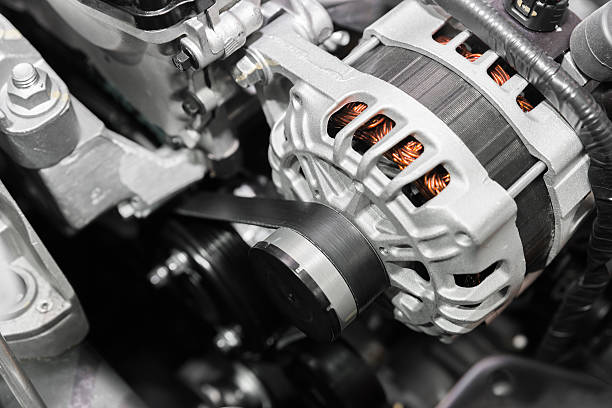January 17, 2024
Do I need a new battery after replacing alternator?
Replacing the alternator does not necessarily mean you need to replace the battery as well. However, it’s a good idea to inspect the battery and consider its condition when replacing the alternator.
Here are some factors to consider:
- Battery Age: If your battery is old and nearing the end of its lifespan, it might be a good idea to replace it at the same time as the alternator. A weak or failing battery can put additional strain on the alternator and affect its performance.
- Battery Health: Check the health of your battery by having it tested. Most auto parts stores offer free battery testing services. If the battery is in good condition and holds a charge well, you may not need to replace it.
- Charging System Test: After replacing the alternator, it’s important to perform a charging system test to ensure that the alternator is charging the battery properly. If the charging system test indicates that the battery is not receiving a sufficient charge, it may need to be replaced.
- Maintenance: If your battery is relatively new and in good condition, regular maintenance such as keeping the terminals clean and ensuring a secure connection can help prolong its life.
In summary, while you don’t always need to replace the battery when you replace the alternator, it’s a good practice to assess the condition of the battery and consider replacing it if it’s old or in poor health to ensure the overall reliability of your vehicle’s electrical system.
Do you need a new battery if your alternator goes out?
When your alternator goes out, it doesn’t necessarily mean you need to replace the battery immediately. However, the condition of your battery should be evaluated, and in some cases, it may be advisable to replace the battery as well. Here’s what you should consider:
- Battery Health: If your battery was in good condition before the alternator failed and it can still hold a charge, you may not need to replace it right away. However, if your battery was already weak or nearing the end of its lifespan, it might be a good idea to replace it as a preventive measure.
- Charging System Test: After replacing the alternator, it’s crucial to perform a charging system test. This test checks whether the alternator is now properly charging the battery. If the charging system test shows that the alternator is functioning correctly, and the battery is charging as it should, there may be no need to replace the battery.
- Battery Age: Consider the age of your battery. Most automotive batteries have a typical lifespan of 3 to 5 years. If your battery is older and the alternator has failed, it might be a good time to replace the battery as well to ensure reliability.
- Maintenance: If your battery is relatively new and still in good condition, proper maintenance can help extend its life. This includes keeping the battery terminals clean and ensuring a secure connection.
In summary, whether or not you need to replace the battery when the alternator goes out depends on the battery’s condition, age, and the results of a charging system test. It’s a good idea to consult with a professional mechanic who can assess your specific situation and provide guidance on whether battery replacement is necessary.

